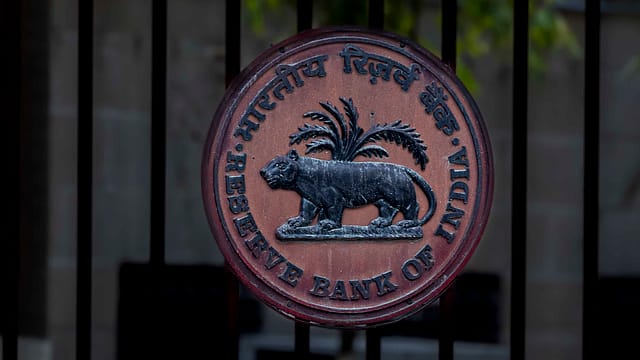India's fight against inflation is far from over: RBI
ADVERTISEMENT

India’s fight against inflation is far from over and monetary policy has to stay the course to align inflation with the target, says the Reserve Bank of India (RBI) in its monthly 'State of the Economy' report.
According to RBI, the onset of monsoon in India has changed the growth trajectory in the country and led to "sporadic price flares" which has firmed up headline inflation in June 2023. In June, the headline inflation surged to a four-month high of 4.81% as against 4.31% in May this year owing to an "uneven monsoon," which has damaged some crops and hindered the movement of goods, causing food prices to surge.
"For the farm sector, the rain deficit is rapidly closing amidst a high cyclone skewed distribution that has left the south peninsula and east and north-east India moisture deficient," says RBI.
Meanwhile, the manufacturing and services activity remained in expansion albeit with some sequential moderation in June from a near 13-year high in April and May, as per the report. The country's manufacturing activity in June fell marginally from 58.7 in May to 57.8 in June, staying above the neutral level of 50.
Consumption expenditure, however, continues to be hamstrung by elevated price pressures, the report noted. The apex bank expects that the onset of the festival season in August and down-trending food inflation will revive consumer spending in the second quarter of FY24.
Meanwhile, the overall balance of payments surplus improved strongly in April to June quarter of FY24 indicating that financial flows comfortably exceeded the current account deficit.
January 2026
Netflix, which has been in India for a decade, has successfully struck a balance between high-class premium content and pricing that attracts a range of customers. Find out how the U.S. streaming giant evolved in India, plus an exclusive interview with CEO Ted Sarandos. Also read about the Best Investments for 2026, and how rising growth and easing inflation will come in handy for finance minister Nirmala Sitharaman as she prepares Budget 2026.
"With domestic demand gaining traction and import demand picking up even as exports remained weak, the current account deficit is expected to have expanded modestly in April-June 2023 from a near balance in the preceding quarter. The overall balance of payments improved from a surplus of US$ 5.6 billion in January-March 2023 to US$ 24.4 billion in April-June 2023, indicating that financial flows comfortably exceeded the current account again on a quarterly basis," says RBI.
Globally, inflation has been moderating on the back of easing commodity prices globally, according to the report. "Yet core inflation remains stubborn due to still strong momentum in prices of services that are usually sticky, with output being relatively labour-intensive and susceptible to wage pressures," says the apex bank.
"The narrative about inflation is coalescing around the view that while the disinflation was achieved in about a year as in earlier inflation episodes, the 'last mile' in the descent to the target may pose the biggest challenge," it adds.
According to RBI, though rents and used car prices may offer a downside to core inflation going forward, households and firms "may first seek to recoup previous and expected future losses through their wage- and price-setting decisions." "These effects may play out more strongly in countries where inflation expectations are less anchored and indexation is more prevalent," says the apex bank, adding that an increase in the price level due to price shocks in one category are propagating to others and sustaining overall inflation pressures.
